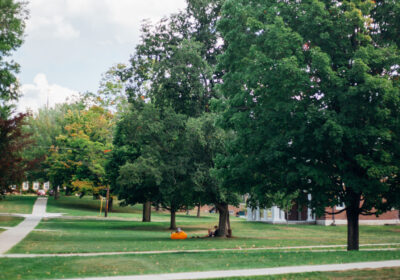Seniors:
- Once your applications have been submitted, be sure to track the status of each app online to ensure all of your application materials were received. Follow up with your school counselor ASAP if a college is missing your transcript or a letter of recommendation. Check your junk email folder regularly (daily), so you do not miss correspondence from colleges.
- Interviews! Sign up for interviews for all of your RD schools as soon as possible (where available/and if still open), if you have not done so already.
- For RD schools, consider writing interest letters to go out early this month—no later. If you have defer letters/essays that need to go out, get those out ASAP, too.
Juniors:
- Keep prepping for standardized tests (ACT, SAT, SAT Subject tests) and working hard in all of your classes; your grades this year are very important.
- Do you know what major(s) you will mark on your application? Do you have a clearly defined academic interest or set of interests for your college apps? This is a critical part of your application that should be determined now.
- Continue working on your resume. Some summer programs, internships, and interviewers may ask for this, so it’s useful to have it handy.
- Next summer is a wonderful opportunity to do something really meaningful, perhaps even fun, that will help you tell your story for college! Get those plans in place now.
- Meet with your school counselor about your preliminary college list and go over your goals and plans for college visits.
- Speaking of college visits: Are you going to sit in on a class? Do you want to meet with someone in your intended department of interest (major, minor, etc.), or a current student? Not all schools offer formal pathways to these opportunities, but that doesn’t mean you can’t make them happen; this all falls under what I call ‘extended research/outreach’ and it can be highly beneficial. **After visits, even if you only attend a general info session and take a tour, please send your regional rep and any admission representatives you met a follow-up/thank you email** This opens a line of communication with someone at the school, and demonstrates interest. I also recommend keeping a document with any notes and observations from your visits. These notes will come in handy when writing supplemental essays and/or when writing a deferral letter, or letters of interest.
- Take a college tour via CampusReel. Visiting campus in person is great, but you won’t be able to tour all of the schools on your initial list. Plus, formal campus tours can be a bit limiting! CampusReel is one of my favorite ways to get a real insider look at colleges.
- Some colleges open up their on-campus interviews this spring. If you plan to interview on an upcoming visit, please prepare. You should always prepare for interviews, even if a school states they are not evaluative.
- Start to think about your senior year schedule. Do you know what you will be taking? Your senior classes should be the most challenging of your four years.
Sophomores and Freshmen:
- An impressive academic record is the most important admissions factor at most colleges. Work on creating smart study habits this year.
- Will you be taking SAT Subject Tests this spring or starting your SAT or ACT prep this spring/summer? Begin to decide on a testing schedule and plan for how you will prepare for these exams.
- Many 2019 summer program applications are now open. Please begin thinking about your plans for summer 2019 and work on applications if needed.
- Start to think about next year’s course schedule. Do you know what you will be taking? Your classes next year should be more challenging than this year.
- Now is the time to build your academic profile for college, and this means pursuing what interests you academically and intellectually outside of your classes. Have you gotten more involved with any academic extracurricular activities? Have you thought about what you might want to major in? Think about ideas for new and different activities or how to get more involved in your favorite activity (academic and non-academic); exploration now will help you begin determining what you might want to study in college. A great place to start exploring your academic interests is Khan Academy: https://www.
khanacademy.org. - One way that your “story” is conveyed in your app is through your resume. Keep working on yours this month.



 Prestige/>
Prestige/>